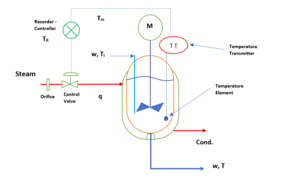The third Open Research Lecture in the frame of candidatures for the faculty position in Process Dynamics and Control at the School of Chemical and Environmental Engineering, TUC will be delivered on Friday, 4th of March, 2022 at 17:00, online via Ζοοm at the following link:
https://tuc-gr.zoom.us/j/98591840192?pwd=cEQvdlhCRE5nVThQdmVlaHZ1RVJQUT09
Meeting ID: 985 9184 0192
Password: 987765
You are welcome to attend the lecture "Optimal, stochastic and multiagent control systems. Applications in battery energy storage and epidemics control" by Dr. I. Kordonis.
Abstract
In this lecture we will present some new challenges and opportunities within the field of control systems engineering, with a special emphasis on stochastic optimal control and multiagent systems. We will then present some applications in energy systems and epidemics control.
The first application concerns battery energy storage systems (BESSs). BESSs are complex, non-linear systems with electrochemical, electronic, and thermal components, and their batteries degrade over time, leading eventually to the end of their life. Thus, the optimization of BESSs operation faces significant challenges, including the optimization in different time scales, stochastic environment, and high dimensional models (curse of dimensionality). We will then present some problem-specific techniques developed for this application.
The second application concerns epidemics control. Covid-19 pandemic is one of the most significant events of our era. Its control involves a variety of measures, including physical distancing, mask wearing, vaccination, contact tracing, testing and isolation. However, epidemic dynamics depend, to a large extend, on the interaction of individual behaviours with collectively imposed rules. In this framework, we present some multiagent and game-theoretic models for the spread of epidemics with emphasis on the modeling of heterogenous people’s interactions and vulnerabilities.


